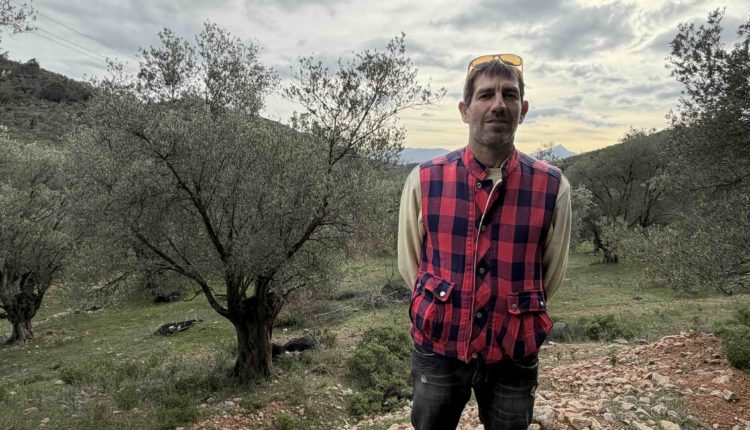
7,500 olive trees in the mountains in Lesvos 🇬🇷
Where: Lesbos / Lesvos (Mytilene), Greece
“This part is the bigger one. Pine trees are the border.” Prokopis Bantzis stretched his arm out showing the borders of his family’s expansive olive orchard outside of the mountain village of Pigi on the island of Lesvos (Mytilene), Greece. I was on a drive to meet with mutual friends, the Tzortzis family in Komi (the next village after Pigi) when I began filming a farmer passing by in his tractor. We began to converse.
And the tour began.
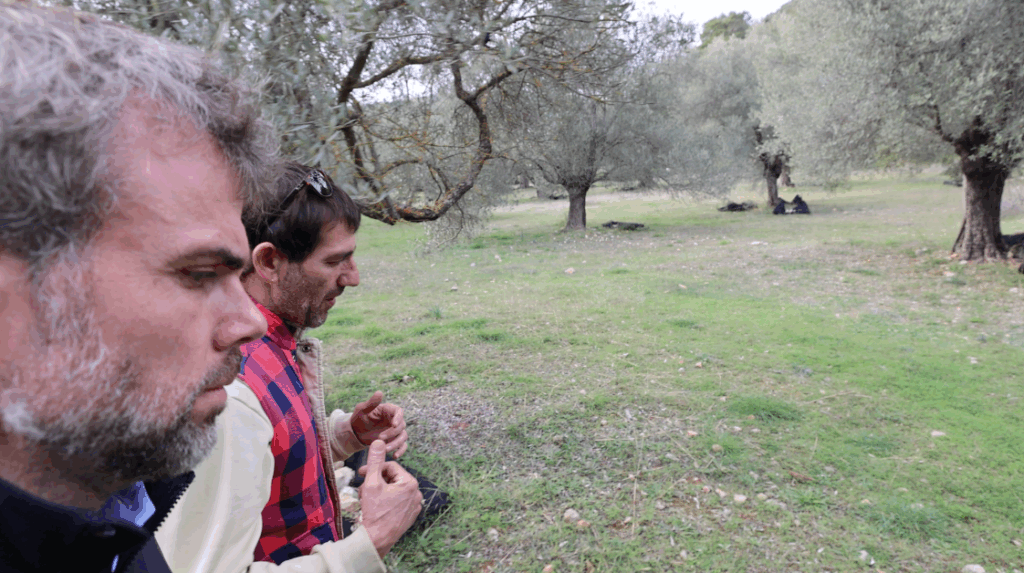
A legend with a dramatic plot
The land entered the current family in 1893 through Prokopis’ ex-wife, Aliki Mitsou’s great grandfather, Stilianos Kouppas. Stilianos was one of four brothers who bought the land from an Ottoman family.
In a dramatic storyline, in which Prokopis acknowledged that he wasn’t sure if true or not, but was told by a former 93-year old worker on the farm: Stilianos, one of the four brothers, got wind that the Ottoman, who the land was being acquired from, plotted to shoot him at transaction time. And so Stilianos hired someone, “to grind the cock of the pistol in order to not reach the bullet.” When the parties met to transact, the gun was pulled, it didn’t fire, the transaction went through, and the orchard entered the family.
The orchard and harvest
On 50 hectares, the orchard consists of approximately 7,500 olive trees of the Kolovi & Adramytini varieties, both indigenous to this region of the Mediterranean.
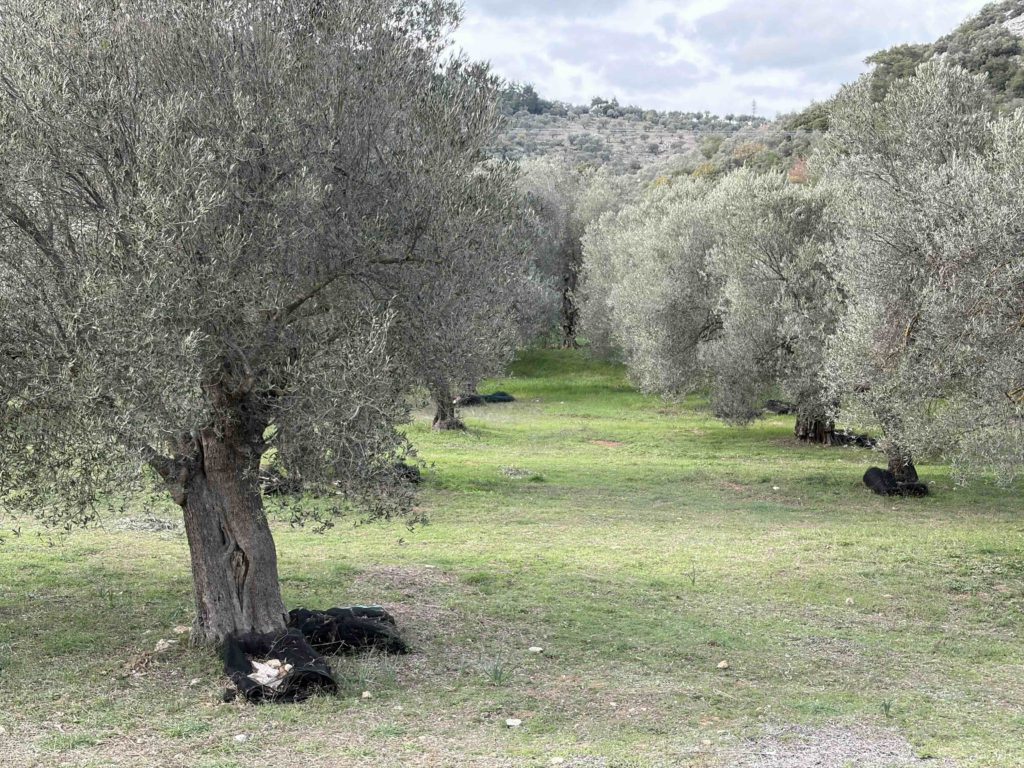
The family privately mills at the Tzortzis oil mill in Komi and sells mostly to Germany.
Prokopis acknowledged that it was a slower harvest season. “This year there isn’t many olives. Last year was the good year that we harvested a lot of olives. It’s how it comes with the olive trees. They produce one year, second year less. [And] with the climate change we have less rain. Far less rain that we have in the winter time. I think this is affecting the trees [too].”
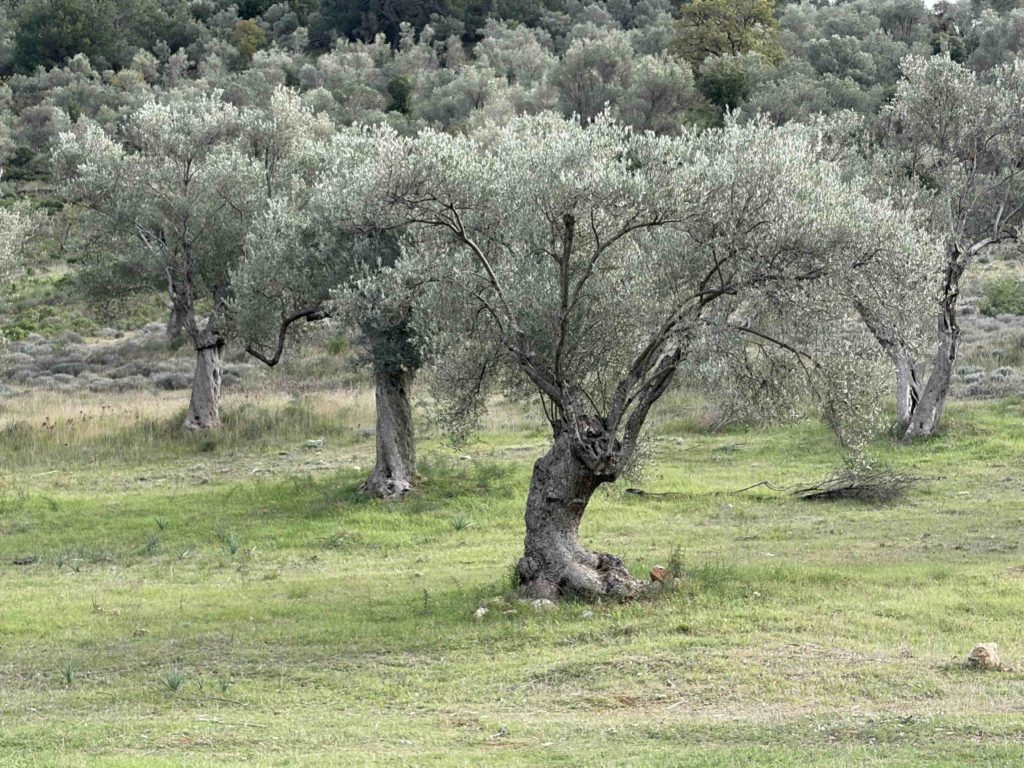
A staple in the community
Prokopis spent adequate time acknowledging the previous generations of the land.
He mentioned that most of the people in nearby Pigi village used to work on the orchard. And told how the grandmother of Aliki, whose name was also Aliki, in the 1950s, built one of the two schools in the village. He gave me directions on how to find the school.
The great grandfathers who purchased the land in 1893 were: Axilleas (Achilles, in English), Georgios, Stilianos, and Grigorios. Prokopis mentioned that one of the four brother’s were directly involved in the Greek revolution.
Of Prokopis own ancestors, his grandparents came from the Anatolian peninsula (present day Türkiye), in the Ayvlık region. His grandparents were part of the population exchange that occurred between the two nations after the Greek revolution—A common occurrence Ithaca Bound has come across. (observed in Ithaca Bound articles: This Greek family from Anatolia, Türkiye and this Turkish family from Thessaloniki, Greece)
As I left to continue my trip to Komi to see the Tzortzis family, Prokopis hopped back on his tractor and trailed on through his family’s orchard to continue his work for the day.
It’s a marvellous journey.
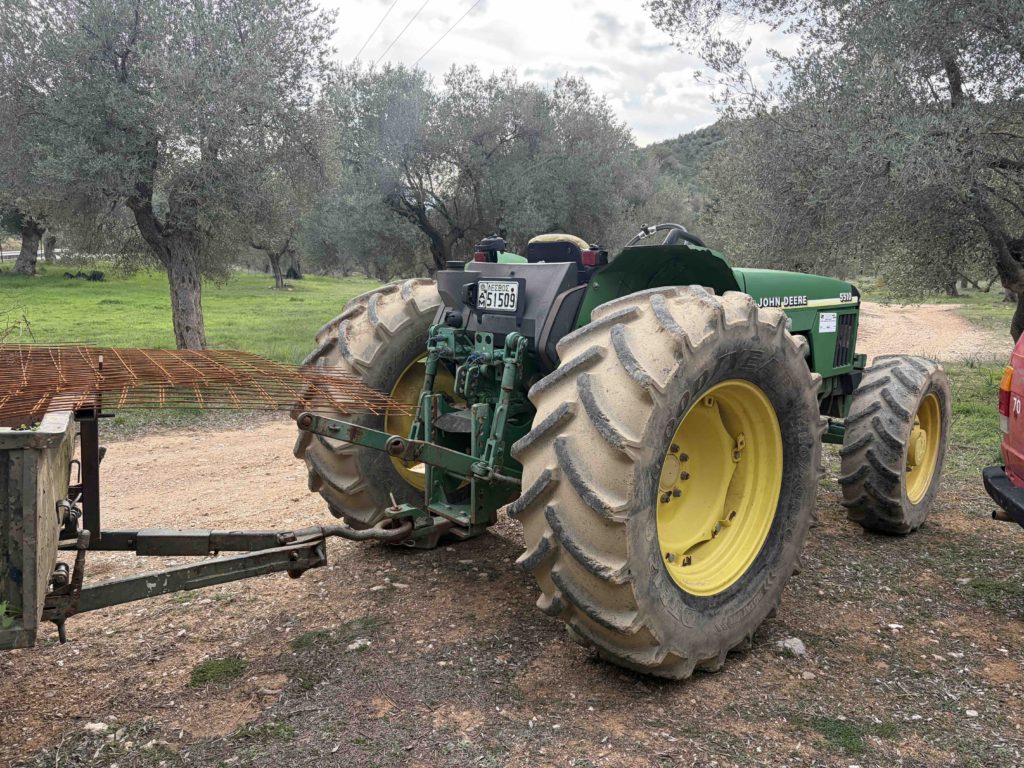
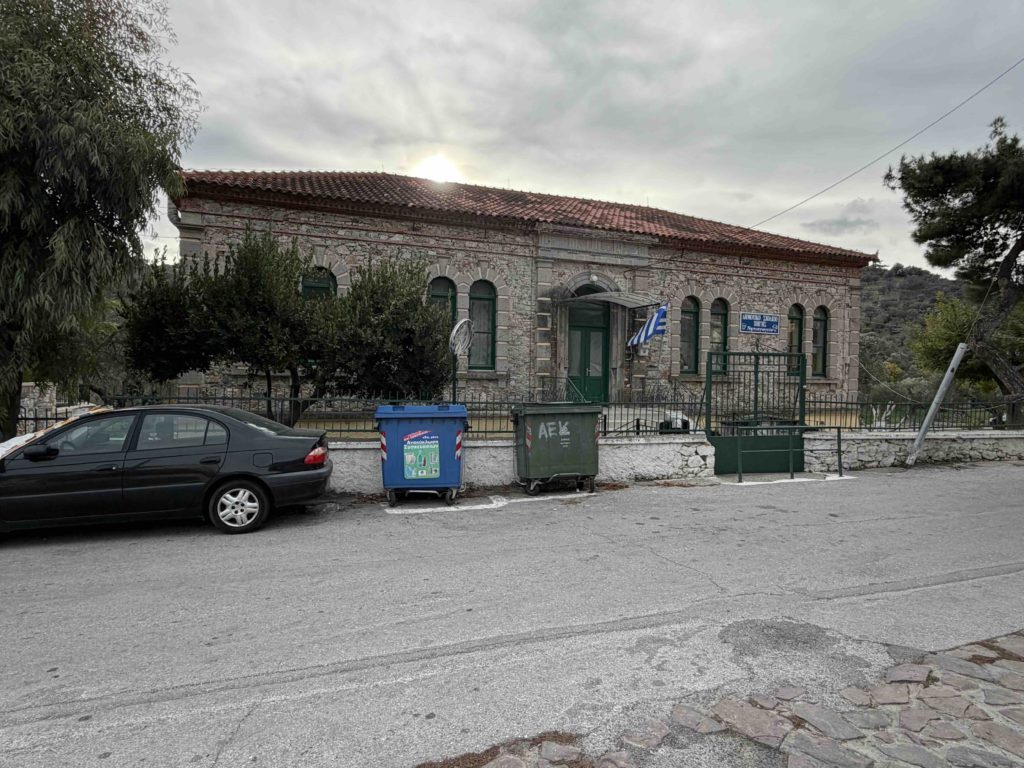
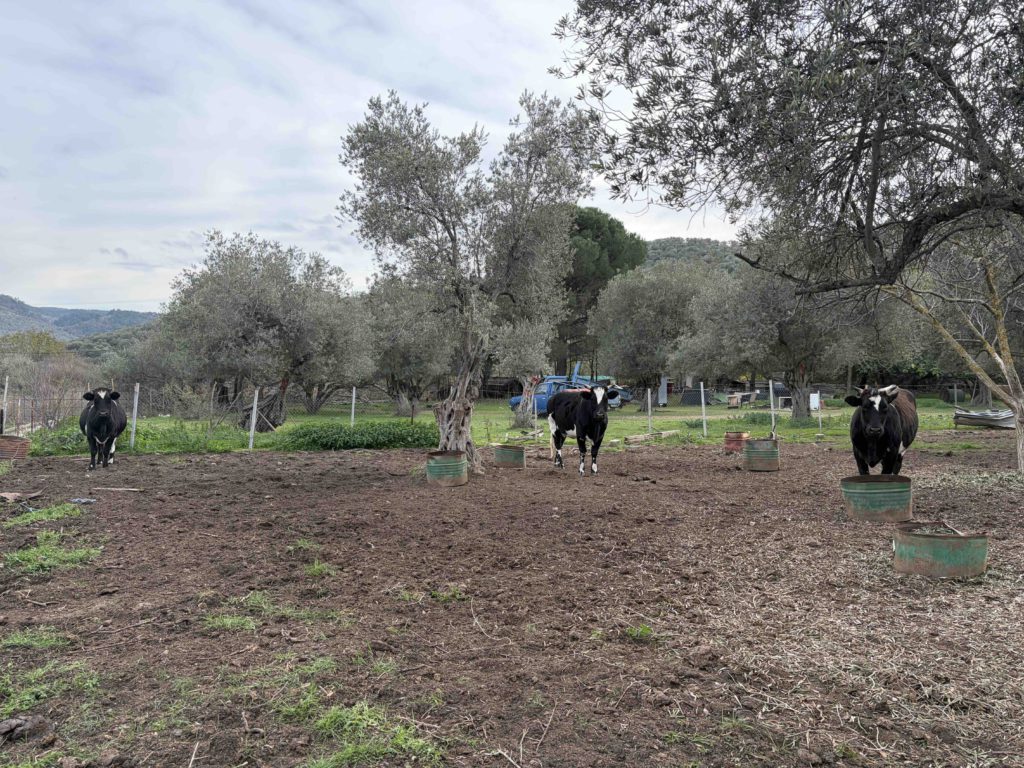
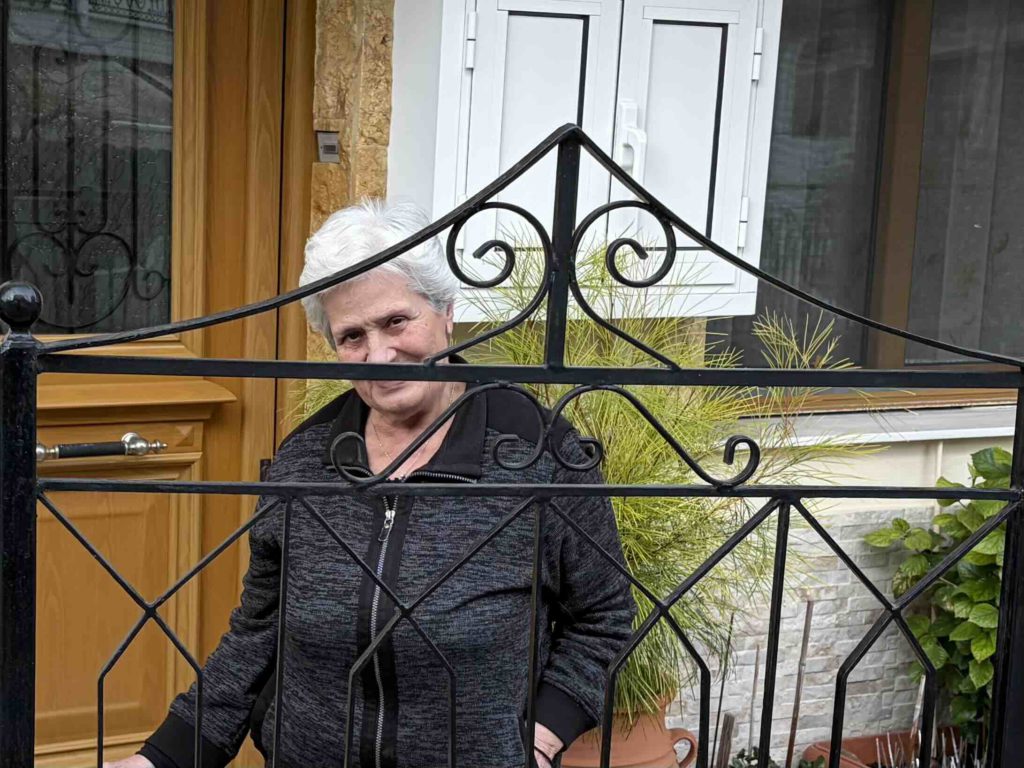
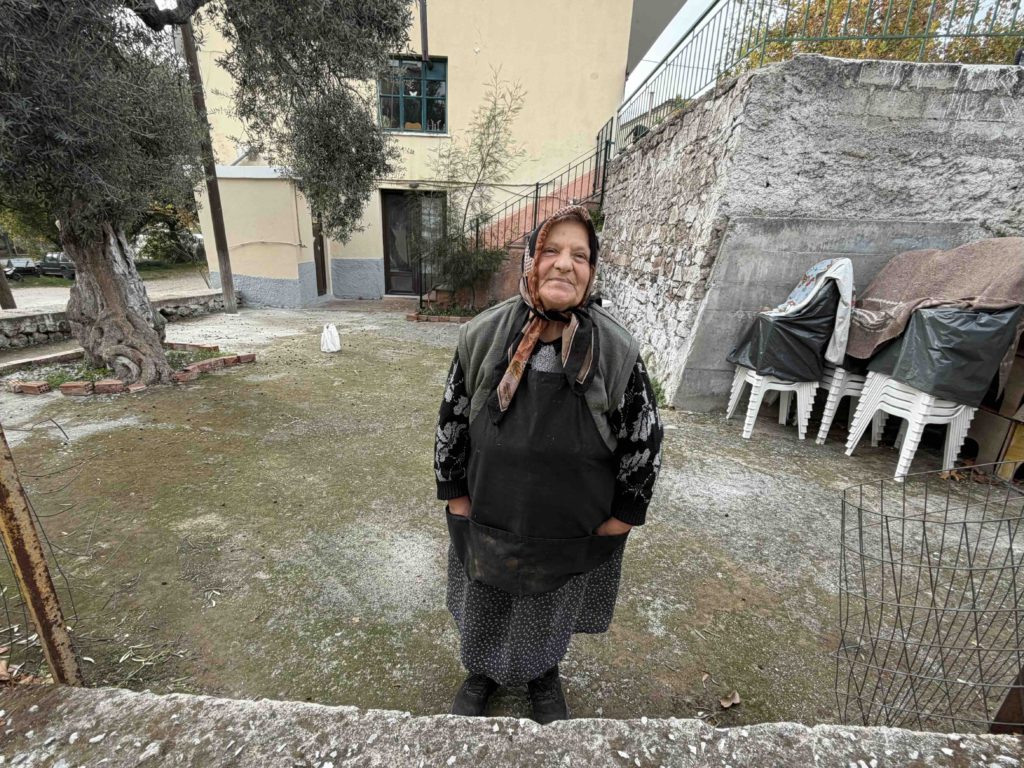
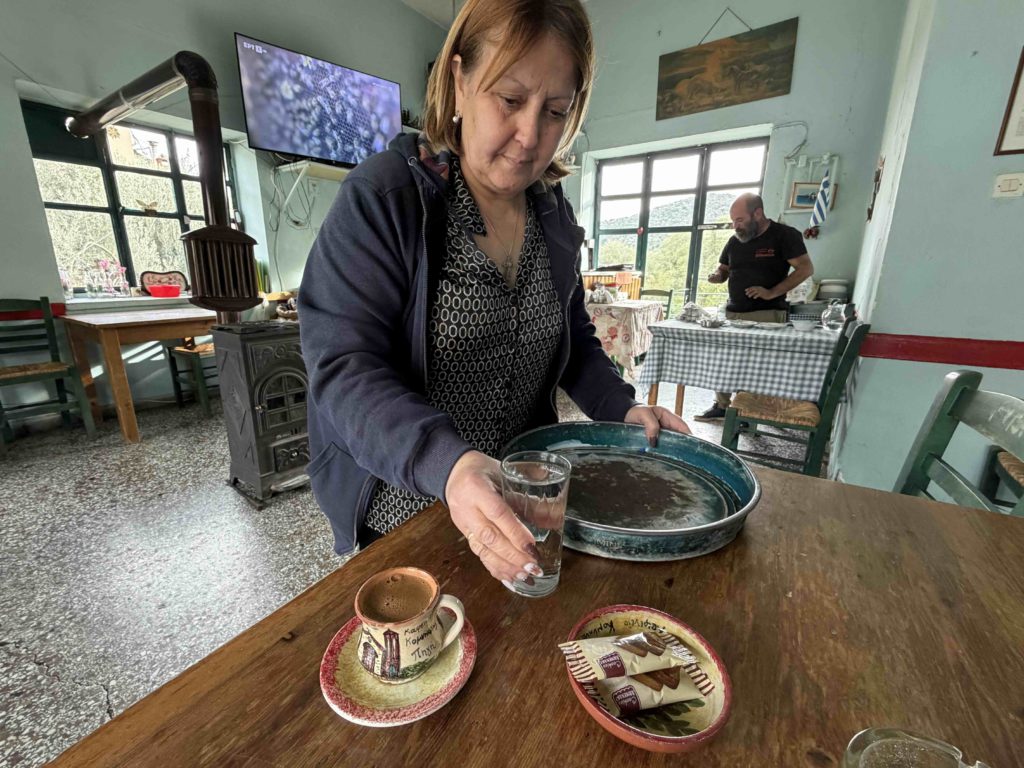


Comments are closed, but trackbacks and pingbacks are open.